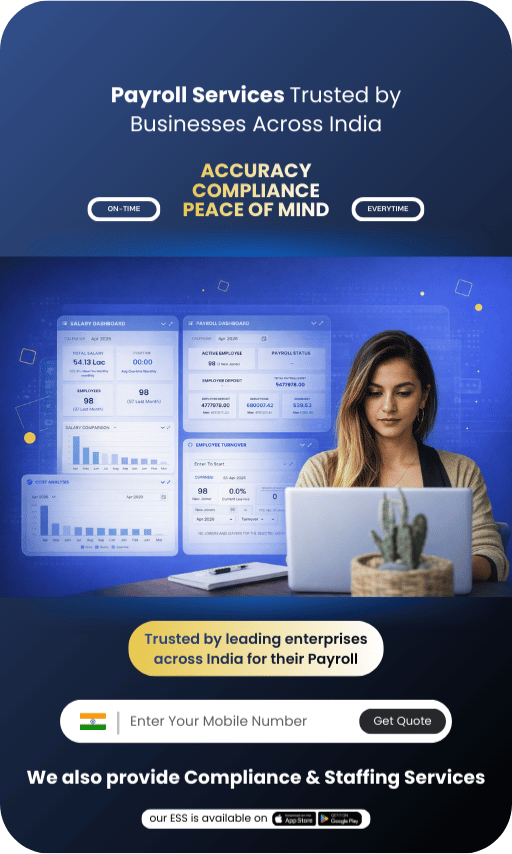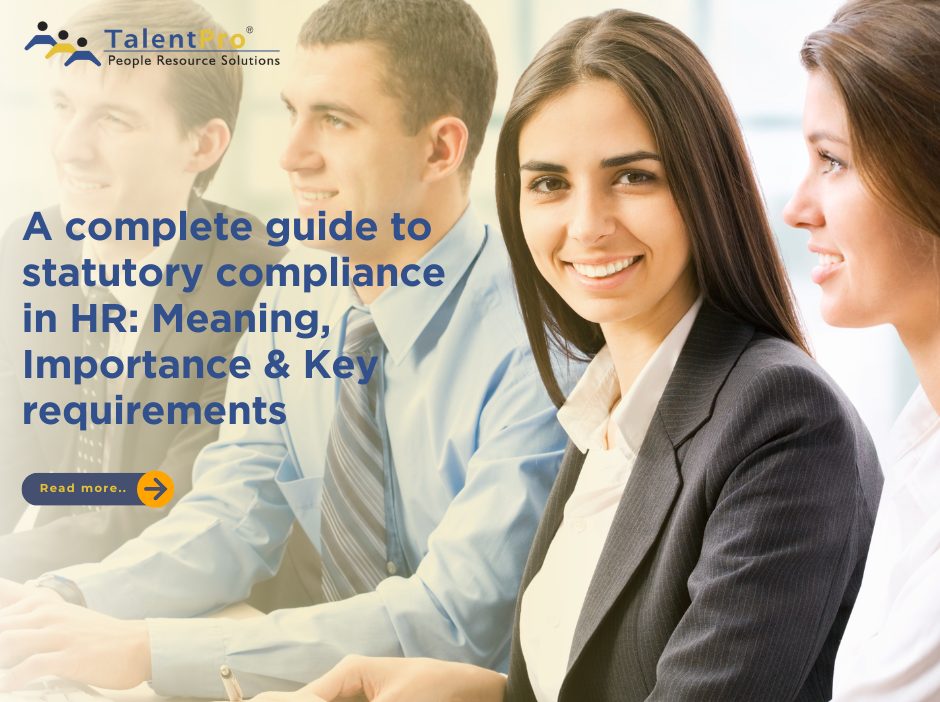HR compliance is as important as it sounds—it is one of the most critical responsibilities of the HR function. It encompasses a set of statutory rules and regulations mandated by the government to ensure both employee well-being and organizational integrity, facilitating 100% compliance.
What is HR compliance?
HR compliance refers to the legal framework that organizations must adhere to in order to safeguard employee rights and maintain a fair and lawful employer-employee relationship.
It includes policies and procedures designed to ensure that all employment practices align with government regulations. Failure to comply can lead to serious consequences, including hefty fines and legal penalties.
HR compliance in India refers to the legal and regulatory requirements that businesses must follow concerning their employees and workforce management. These laws are designed to protect employee rights, ensure fair treatment, and maintain workplace safety.
Read more:(hr compliance checklist 2023: a guide for hr professionals)
Key HR compliance laws in India
- Employment & Labor Laws
- The Shops and Establishments Act (State-Specific) – Governs working hours, leaves, holidays, and conditions of work.
- The Factories Act, 1948 – Ensures worker safety, health, and welfare in manufacturing units.
- The Industrial Disputes Act, 1947 – Regulates the resolution of disputes between employers and employees.
- Payroll & Compensation compliance
- The Minimum Wages Act, 1948 – Ensures that employees receive at least the government-prescribed minimum wage.
- The Payment of Wages Act, 1936 – Regulates timely salary payments and deductions.
- The Payment of Bonus Act, 1965 – Governs the payment of annual bonuses to eligible employees.
- The Equal Remuneration Act, 1976 – Ensures equal pay for men and women for the same work.
- Statutory benefits & Social security
- Employees’ Provident Fund and Miscellaneous Provisions Act, 1952 (EPF Act) – Mandates contributions toward employees’ retirement savings.
- Employees’ State Insurance Act, 1948 (ESI Act) – Provides medical and cash benefits to employees earning up to a specified limit.
- The Payment of Gratuity Act, 1972 – Ensures gratuity payments to employees completing five or more years of service.
- Labour Welfare Fund Act (State-Specific) – Imposes contributions from employees and employers for employee welfare activities.
- Workplace safety & Welfare
- The Occupational Safety, Health and Working Conditions Code, 2020 – Consolidates safety, health, and working conditions regulations for employees.
- The Maternity Benefit Act, 1961 – Provides 26 weeks of paid maternity leave and other benefits to female employees.
- The Employees’ Compensation Act, 1923 – Offers compensation for workplace injuries or fatalities.
- Prevention of workplace harassment & Discrimination
- The Sexual Harassment of Women at Workplace (Prevention, Prohibition and Redressal) Act, 2013 (POSH Act) – Requires companies to have an Internal Complaints Committee (ICC) to address sexual harassment cases.
- The Rights of Persons with Disabilities Act, 2016 – Ensures equal employment opportunities for individuals with disabilities.
- Compliance with Labour Codes (Upcoming Reforms)
India is in the process of implementing four labor codes, which will replace existing labor laws:
- The Code on Wages, 2019 – Combines minimum wages, payment of wages, bonus, and equal remuneration laws.
- The Industrial Relations Code, 2020 – Regulates trade unions, dispute resolution, and employment conditions.
- The Social Security Code, 2020 – Integrates laws related to EPF, ESI, gratuity, and maternity benefits.
- The Occupational Safety, Health and Working Conditions Code, 2020 – Focuses on employee safety and working conditions.
HR compliance best practices for businesses in India
- Ensure timely payment of wages and statutory deductions.
- Maintain proper records of employee attendance, payroll, and benefits.
- Implement an Internal Complaints Committee for POSH compliance.
- Conduct regular compliance audits and updates based on legal changes.
- Provide employees with clear HR policies and legal awareness training.
HR compliance is an essential element of every business, maintaining legal compliance, developing solid employer-employee relationships, and building credibility for your brand. Compliance management in-house can be complicated and time-consuming—that’s where we step in.At TalentPro, we offer decades of experience in providing top-of-the-line HR compliance solutions to industries. Whether your business operates in any domain, we make sure you have hassle-free compliance management specifically for you.











